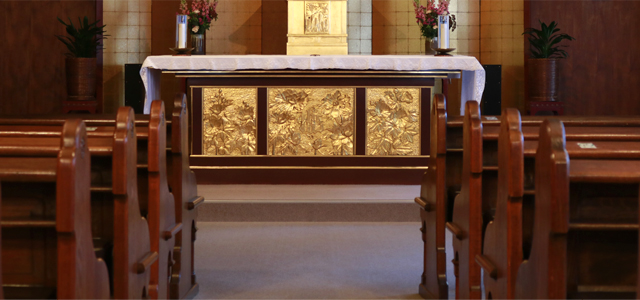
Catholic Q&A
There seem to be many different denominations of Christianity. In what way do Catholicism and Protestantism differ?
Let me first speak about how Catholicism and Protestantism do not differ. Just as numerous streams of water flow from a single fountain, so also several different denominations have emerged from Christianity, during the past 2,000 years of its history. Yet, their source is the same Jesus Christ. Those who worshiped Jesus as the Lord, those who sought to live in accordance with the Gospel of Jesus, gathered around the disciples who were closest to Jesus, and there the Church was born. Those disciples who were closest to Jesus were called apostles, and based on the teachings of the apostles the Church steadily became more and more organized. The teachings of the apostles were written down and read out in the churches, and this gave birth to the New Testament of the Bible. Until this point, there was no denominational difference. In other words, there was, “One Lord, and one Faith.” (Ephesians 4.5).
Christians themselves at times get so fixated on denominational differences, that they tend to forget this. There are no differences between denominations with regard to the key points of Christian faith, namely belief in the same Jesus as Lord, deliverance from the dominion of sin through His death, and the promise of divine life through His resurrection.
If that be the case, then from where do these differences arise? I guess we may say that over a lengthy period of time they evolved gradually into diverse forms, along with changes in ethnicity, politics, and culture.
For different ethnic groups to have developed these variations at diverse times and in a multiplicity of ways, would have been something natural. Thus, variations arose among them with reference to the way of understanding the Bible, the means of conveying the doctrine, the organizational structure, and even regarding the way of conducting the liturgy and rituals.
The Catholic and Protestant Churches, both of which developed primarily in the West, became divided following the Reformation of the 16th century. The Roman Catholic Church sought to maintain a universal church organization throughout the world, with the Pope at the center. However, in the Christianized Western society of the Middle Ages there were many instances wherein it became entangled with wealth and power, and hence it deviated from the original spirit of the Gospel. As a response to this the Reformers called for a return to the genuine spirit of the Gospel. They emphasized a free and responsible faith based on the Bible, and not bound by Church authority, doctrine, and other such factors. Nevertheless however, despite their pure intentions, the political and ethnic conflicts of the time became involved, resulting in unfortunate Church divisions and confusion. As a result of the Protestant Church having split from the Catholic Church more and more divisions arose among them, until the splits finally resulted in thousands of denominations.
This being the case, attempting to answer the query as to how Catholics differ from Protestants is not easy. This is because the term Protestant includes ever so many distinct denominations. Generally speaking the Catholic Church is united around the Pope and values tradition, while Protestant Churches are directly based on the Bible and are relatively free to create their own Church organizations. As a consequence of this, visitors entering Christian churches for the first time will notice that differing denominations have dissimilar ambiences, both with reference to the way of worship and the manner of expression of their faith.
There is supposed to be one Church of Christ, and it is meant to convey love and reconciliation to the world. If that Church is split into many denominations that despise each other, it is a contradiction against the very nature of the Church. Hence, there is now a movement in various parts of the world for Christians to unite, by transcending denominational barriers. If Christians can discover great values in the traditions of other denominations, values their own denomination does not have, and if they can learn from each other, we might say that the existence of variations in denominations is something enriching for Christianity as a whole.
